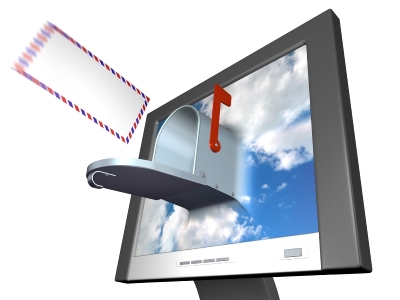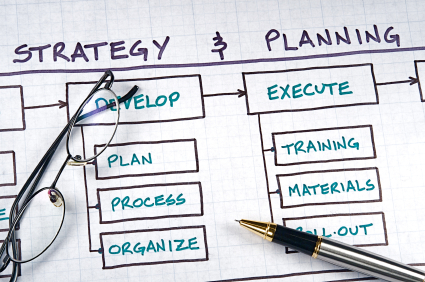
In order to advance your career and get your job search back on track, there are a few things that you must do correctly. As a job seeker, finding a job should be your full-time job. Many people work tirelessly to find a job, but they keep coming up short, so today we’re going to have a look at the 5 reasons that your job search is still going and why you’re not getting the response that you feel you should. If you find yourself doing any of the following, then today is a great day to take action.
1. You do not make your job search personal
What this means is that you’re still sending out generic resumes with no target. Instead, get personal. Find the names of HR Managers, company directors or anyone involved in the hiring at the company. Then you send them a personalized note with your custom made resume to their company explaining your desired position and how you could help the company.
2. You are looking in the same place as everyone else
One thing you have to keep in mind is that there are a lot of unemployed people right now. Many of these people will be looking in the exact same field, geographical area or they have the same skill level as yourself. One way around this is to find opportunities through networking, online job searches and by using job boards to find hidden career options. If everyone is looking in the same place, it will only drown out your voice. Be different and look at all of your options.
3. You believe every word you hear about the recession
If you think everyone is living hand to mouth, then you are very mistaken. America has a lot of opportunity for people who are willing to look. Yes, it’s tougher than usual, but not impossible to find a job that suits you. Take a few minutes to review the positive aspects and reduce your stress level. An open mind will lead towards an open job.
4. Poor email etiquette
Every time there is a job fair, we see this problem emerge. People do not read their emails and proof them, but you can bet that your prospective employer is reviewing every little detail about your resume. Misuse the word “your” in place of “you’re” and it’s a dead giveaway that you did not proof your email. Another way that people send out poorly written or constructed emails is if they do not have a subject, have a subject line that reads, “have a look at my resume” or poorly written opening lines in the email. Try to show a little patience and take some time to review your emails before you send them.
5. You’re not as productive as you believe
Sending out a few resumes during the morning and then taking the rest of the day to watch some TV is not a productive job search. Get into the habit of diligently looking for a job. Make yourself a schedule and stick to it. All you have is you. So, work hard and you will find the right career for you.
Scouring the Internet for Employment – A Warrior's Adventure
Executive ResumesInterviewingJob SearchNetworkingProfessional ResumesResume WritingResumes
Finding employment can be tough, many people have been out of work at one point in their lives, but that doesn’t mean that you have to get down on yourself. Losing your job can be crushing, you have to deal with the loss of income, health insurance and the pain of rejection. If you find a job quickly those feelings soon pass, but if your job search drags out it can leave you strained.
The hardest part of being out of work for a long period of time is keeping that positive attitude, especially when the job search turns into months and years. You have to keep a positive attitude for your own sanity and to make a good impression with potential employment opportunities. Here are some helpful ideas for those job search warriors out there trying to keep their chin up.
- Find something to do with your time, being a job hunting warrior isn’t about making the quick easy kill, if you want to have a good job that you will enjoy, then you need to do something that will occupy your time while you hunt. A hobby like an eBay store is a great way to expand your skills while still earning some money.
- Take some time and do the things you would not normally be able to do. Spend some time with your kids or take a trip that you’ve always wanted (if you have the money).
- Help out with the household chores. Just do something that will take your mind off of the hunt and recharge your batteries long enough for you to regain focus. You have to be mentally and physically prepared if you’re going to get back into the swing of things.
- Learn a new skill. Take up sewing or start playing badminton, anything you can do to relieve the stress of looking for a job. Pacing yourself for the job hunt is important because you can burn out by focusing all of your energy into that one thing.
- Update your resume. There’s no time like the present to start developing a new resume, now you can put some of those new skills that you’ve acquired on that and showcase what you’ve learned during your job hunt. A job hunting support group isn’t a bad idea either. There you can share your experience with other people and do some networking while you’re at it. These groups are here to help people, so take advantage of the opportunities you have.
- Enjoy your day. Most wary warriors like to focus their job search efforts during the day when most people are at work but that doesn’t mean you have to spend all your day looking for work. Take a second to go outside and enjoy the air or read a book that you’ve always wanted to. Just do what you can to recharge during this down period because you’ll need it once the night job hunt is on.
What Can You Do to Calm Your Nerves Before an Interview?
Assessments & EducationCareer & WorkplaceInterviewingJob SearchSuccess Strategies
Oh no, the dreaded pre-interview jitters. Everyone has been nervous before– you know the sweaty palms, the sense of lightheadedness and the jumpy speech – none of these outward expressions will make a good impression at a job interview.
The stressful nature of a job interview is enough to shake just about anyone to their core. But you don’t want have to worry about having clammy hands or stuttering speech if you follow a few simple tips to help calm your nerves.
- Arrive early enough to relax
Most people know to arrive to a job interview a few minutes early, but if you’re easily stressed out by interviews, you should arrive a little earlier. 30 minutes is a good time to arrive, it will give you time to sit and relax, have a glass of water and find your center. Make sure you check your appearance before the interview; the more confident you feel, the more composed you will appear in the interview.
- A smile goes a long way
Smiling makes you happy and relaxes people around you, even if you don’t feel happy. Studies have shown that if you fake a smile, it will actually make you a bit happier and when you portray this in an interview it relaxes everyone. If you show confidence in the interview, the interviewer will treat you with respect, so remember to smile confidently during your interview.
- Breathe for a moment before you answer
Before you answer any questions, just take a moment or two to inhale a breath and give the question some consideration. You may think you’re taking forever to answer the question, but in reality it’s only one or two seconds. The pause will also appear to be a part of your natural thought process, so it appears as if you’re giving the question serious consideration. Also, breathing deep will help to calm you down, and prepping the question in your mind gives you time to formulate an answer and speak when you are not nervous.
- Look your interviewer in the eye
One thing interviewees often do is fidget around during an interview, especially if they are nervous during the interview. To make and keep eye contact with the interviewer, focus on a spot right between their eyes. Just don’t stare at their nose or mouth. They are below their eyes and most people can tell when someone is looking at their mouths and not making eye contact.
- Relax your body
If there is a pause in the conversation, use this as an opportunity to review your body. Are you tight and rigid, are your muscles clinched or are you fidgeting with your hands? If you are stressed, try to relax your muscles as much as possible. You will feel and appear more comfortable to the interviewer.
It’s not unusual to feel some apprehension during a job interview, but by following some simple stress-relieving exercises, you can maintain your composure and succeed in the interview.
Is Your Email Address Preventing You From Getting a Job?
BlogCareer & WorkplaceExecutive ResumesInterviewingJob SearchNetworking
Everyone has an email address– or if they don’t then they are seriously lacking the skills necessary to find a job. Most people only have one email address they use for everything and a lot of the time they have had that address since they were younger. This might not be a bad thing if your address is based on your name, but if you have an email address like: partyanimal69@’madeupaddress’.com or sexykit10@thisaddress.com, then you probably need to create a separate email account just for your job search.
Typically, your email address will be the first thing that a prospective employer will see when you send them your resume. You email address should be as professional as it can be. Instead of having biglarr@’madeupaddress’.com, you should use a variation of your name. It’s much more professional and it won’t have a negative impact on your chances of getting the position. Some hiring managers won’t even look at a resume if it comes in with a novelty email address. Do you think that a hiring manager would be interested in adding someone who does not present a professional demeanor?
One thing you definitely need to do is create a new professional email address. It’s easy to sign up and get a free email address. You could create your email address based on your name, but if you have a creative profession, you could do a play off of that. But, you don’t want to over do it. If your email address based on your name is taken, then try a last name, first name combination. If this is taken then you can add a number to the end of it. The most important thing is to create an email address that will get you through to the hiring manager. There are thousands of email combinations that you can create, you just want one that will not raise a flag with the HR manager.
Another thing HR managers hate is when they get a resume from a work related email address. This shows the HR manager that at your current employer, you’re not fulfilling your job requirements. Actions like these will definitely raise the red flag when an HR manager sees this. Who knows, they could have worked at your employer before and still know people there. Imagine the problems that could come when they get in touch with your HR manager about you sending out resumes on company time. This could put you current position in jeopardy and affect your ability to find a new job. You never know if they will not take offer you the job because they believe that you might do the same thing to them.
You should set-up an email address that’s professional and will not get you blacklisted by the HR department. It’s a tough job market out there, and everyone needs that extra little edge.
What Do HR Managers look for in Executive Level Talent?
BlogCareer & WorkplaceExecutive ResumesInterviewingJob SearchProfessional ResumesResume WritingSalary
HR Managers like to develop relationships with potential executive candidates long before the candidate is even considering another job. But, you still have to find the right HR Manager who will help you on your job hunt. Human Resource professionals know all the tricks of the trade when it comes to recruiting executive level talent. That’s why you need to know their tricks so that you can put yourself out there and find the career for you.
Experiences vary Incredibly
Executive level recruiters know which streams of information to tap into. Companies are looking for executives with a strong cost/value relationship, so they want great return on their investment. You’re their investment and they want to see results, so focus your attention on ways that you’ve improved your previous employer’s sales or goals.
Recruitment Strategies
Word of mouth is often a great recruitment strategy for executives. If one executive knows that a recruiter will find them a position with more money and better benefits, then they should hop on it. HR Managers are looking for executive talent that can recruit themselves based on their own experience within their field. If they want to choose another field, then the HR Manager will need to focus on showcasing how their talents would translate.
They Collect Data on the Executive Recruit
Collecting data about an executive level recruit is one way that HR Managers look for talent. They want to find the candidate that has the best experience working with close competitors on the same type of position or something similar. HR Managers often find that this is the easiest and most hassle-free way of looking for talent. It’s not easy trying to find the most competitive positions within large companies, but thats what recruiters do, they find the cracks, get the right data and position their client as the best candidate.
Recruiters get Specific
With the amount of people looking for employment, HR Managers have had to get very specific with who they recruit. They advise those who do not meet the requirements for a position, to not apply for that position. HR personnel have to organize and interview those who meet their specific requirements, which is usually done through a phone screen and then a face-to-face. Make sure that you are comfortable during the face-to-face with your recruiter, but your recruiter should also make you comfortable. Often they will offer you something to drink, so take that into consideration, does this person have your best interest at heart? Recruiters will often select people with good listening skills and they pay close attention whether a candidate is listening to them or not. They will not base their choices on looks because clients are not focused on that. Companies are looking for people who are going to make an impact based on their past experiences, not their appearance. That’s not to say that you should not be dressed in business attire.
It might sound like a lot but if you’re going to work with a recruiter on your executive level placement, then you need to follow their instructions and choose the right one. Take it easy, you’ll do fine.
Is it Bad Etiquette to Ask For Another Job While Interviewing?
BlogCareer & WorkplaceInterviewingJob SearchResume Writing
A lot of people will browse a company’s website and see if they have open jobs available, nothing wrong with that and some people will even apply to more than one job while on the page. Nothing wrong with that either. It’s when you get to the interview phase that things can become tricky. Job interviews never seem to get any easier – even if you have gone on more interviews than you can begin to count. You keep meeting new people, talking about yourself and what you offer, and sometimes getting the third degree from employers. But, what if you go into an interview for one job, but you know the company has something that would be a better fit for you?
No one is going to go into an interview and start talking up the merits of one job versus another, but if you interview with a HR representative first it does give you the ability to mention other jobs you might be interested in. So, what can you do to show your interest for another job while interviewing?
Practice makes Perfect
During a usual interview, you may be sweating bullets about the questions or how you appear, but if you took the time to learn about the company and the open positions you are qualified for, you can converse intelligently about the open positions. Think of actual examples that you have used in the past that works well with the job you want. Providing evidence of past work in that field is a great way to shift focus towards other positions.
Prepare for all Contingencies
Prepare a response so that when you ask about other positions you have a quick response to why you are interested in that position. Make sure that you know about the company and the positions that are available. Try and relate your past experience with the skills needed for the other position, sometimes interviewers will know that you are not qualified for one position and will offer you others.
Watch and Learn
Look at what others have done to find a way to bring up other positions lightly. You do not want to go into the interview proclaiming how you are right for another position, the interviewer will not respect that position and it will damage your chances at either job.
Get yourself Ready
Make sure that you are dressed the part, no matter what part it is you’re applying for. Try and look neat, tidy and appropriate for any situation. Bring clean copies of your resume that highlight the relatable experience you have and bring a pen and pad for notes.
Staying Calm
During the job interview try to relax and stay calm, if you need a moment before the interview, take it. Now is the time to get your mind right for dominating the conversation and letting your desires be known.
It may not work every time but if you can get yourself in an interview; you may be able to transition away from one position into interviewing for the one that is right for you.
Resume Tips That Set You Apart From Your Peers
InterviewingJob SearchProfessional ResumesResume KeywordsResume WritingResumesSuccess Strategies
Your resume is your marketing tool for success. You need to be able to advertise your skills and ability to succeed with your prospective employer. The format and feel of your resume can either open doors or close them, often this feeling can make people question why they didn’t get the interview or thinking they are not qualified.
The resume that lands you the job interview isn’t a simple listing of your past duties or work experience. It has to convince readers that you have the required skills and abilities to exceed the expectations of the position, so your resume should be structured in a way that arouses employers interest in you and gives them reasons as to why you are more qualified than others, while encouraging the employer to get in touch with you for an interview.
Most people do not realize that employers will do a quick scan of a resume, it typically lasts only a few seconds. They’re looking for key skills and accomplishments that the perfect candidate will have. So capturing the employers attention is critical or else you’re information can get lost in the shuffle.
To prevent your resume from ending up in the “Trash” file, here are some helpful resume tips that will set you apart from the rest.
1. Review the job posting and description carefully
A lot of the time, job-hunters will write one generic resume and send the same generic resume to every employer. This is one of the biggest mistakes facing job seekers because it produces so-so resumes that don’t necessarily match the employers requirements.
You need to highlight your appropriate skills for that job. Reviewing the job requirements is a great way to tailor-make your resume contents to the employers needs.
2. Know the difference in resumes
There are two main types of resumes: chronological resumes and functional resumes. Chronological resumes coordinate your past job experience and place emphasis on your experiences that apply to that field.
Functional resumes are good when you have little to zero work experience (or new grads). This type of resume allows you to showcase skills that fit in with the job requirements. Fair warning: most recruiters and hiring managers don’t like this format and feel as though you may be “hiding” something.
If you have a chronological resume, you do not want to have one part chronological and one part functional, because it will throw off the entire formatting and may confuse the employer about your skill set.
3. Focusing on accomplishments
Focusing on what you have accomplished will help to set you apart from your peers. You should highlight the value you’ve brought to companies and the success that they have seen while you are there. Companies are looking for game-changers, they want 5 star recruits, not 2 star players who are not up to the challenge. You have to make yourself into a 5-star recruit, you cannot rest on your laurels and hope for the best. Spotlighting your success will show potential employers that you are capable of outperforming your peers.
Women Going Back to Work After a Baby
BlogCareer & WorkplaceCover LettersFamilyInterviewingJob SearchProfessional ResumesResume WritingSalary

Many women choose to stay at home for several years after having children. While this time frame varies, it always creates a period of time during which you had no ‘real’ job. Once a mother is ready to go back to work, one of the first problems they face in deciding how to write a resume that not only accurately describes their professional experience and career but also properly addresses extended maternity leaves. By using tact and creativity while remaining professional, it is often possible to ‘spin’ an extended leave for the purposes of resume writing and interviewing.
Be honest. Some job seekers mistakenly believe that extended maternity leave is an automatic black mark. Because of this, some lie and claim they were self-employed during their maternity leave. This is a patently bad idea. While it is unlikely that a future employer will investigate the claim, lying during the job seeking process is unethical and can lead to problems down the line. Instead, be honest about your extended work leave. I have found that all hiring managers want is an answer. Where were you all that time? On an extended vacation? Watching Oprah? In prison? They just want to know about the gap.
There are two ways to present extended work leave during the resume writing process. The first is to simply include one or two sentences in the cover letter explaining the reason for your extended leave, the birth of children, and that you are ready to re-enter the work force. Job seekers who opt for this option should keep it short and focus on logical reasons versus cute stories about their children (please don’t do that). Remember to keep it professional.
A second option is including your work leave directly on your resume. Some job seekers have had success by including their responsibilities and skills used during their extended leave. Scheduling, organizing and multi-tasking are just a few of the skills new mothers hone during their absence from work. These skills, and others, can be beneficial in the work environment.
Unfortunately, the human resources community is divided on the subject. While there are laws governing hiring practices, the truth is a resume and cover letter is your first and often only chance to sway a hiring manager to meet with you. While an extended leave of absence for child care reasons may be admirable to some, actually giving the job seeker a leg up, other hiring managers may shy away from resumes that do not adequately cover the subject.
The best advice may be to carefully research the company and hiring manager for each job you are submitting your resume for and to craft a specific resume and cover letter for each job. Carefully reviewing a company website and Internet research may very well give you inside insight into the company and their practices.
Finding a job after an extended maternity leave can be a long process. In fact, it seems like the longer you were out of the workforce, the longer it takes to become employed again. Try focusing your efforts on professionally representing your time off and be as honest as you can. Remember that finding a job is a job in itself so stay positive, craft custom resumes and cover letters whenever possible and use your interview as a chance to really showcase what you can offer the company.
